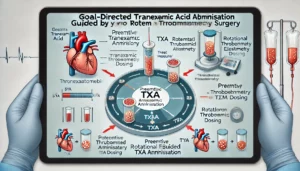
Efficacy of Reduced-Intensity or No Heparin Versus Standard Heparin Anticoagulation in Patients on Extracorporeal Membrane Oxygenation: A Systematic Review and Meta-AnalysiS
This systematic review and meta-analysis of 11 studies (958 ECMO patients) compared reduced-intensity or no heparin anticoagulation with standard heparin strategies. Low/no heparin significantly reduced bleeding complications (OR 0.49) without increasing thrombotic events or in-hospital mortality. Transfusion requirements showed no significant difference. Findings support individualized anticoagulation strategies, though high-quality randomized trials remain needed.










